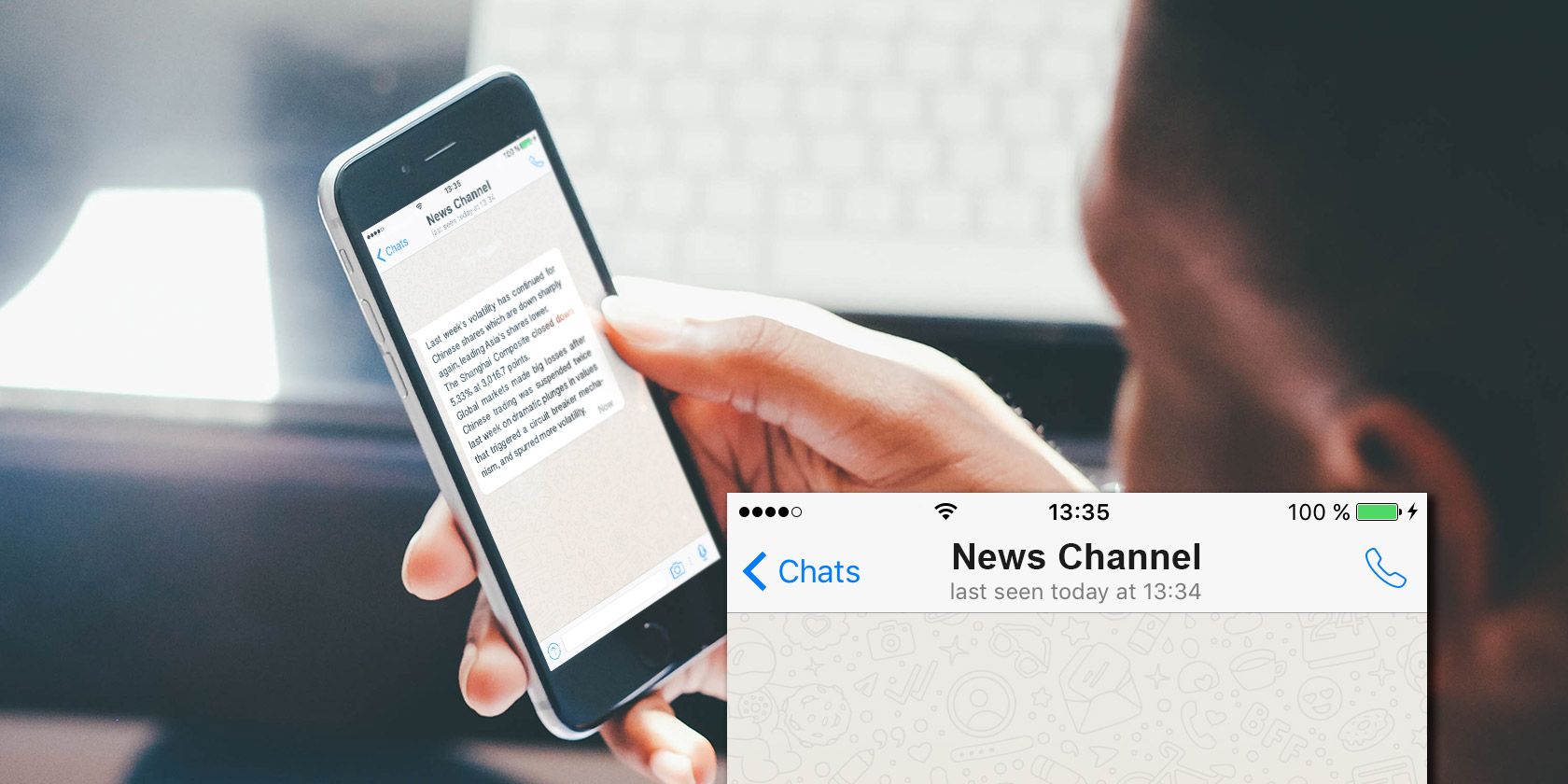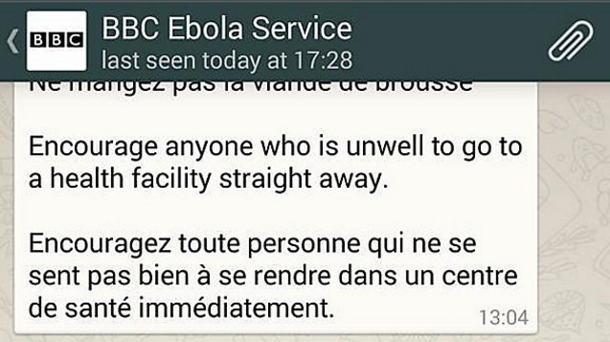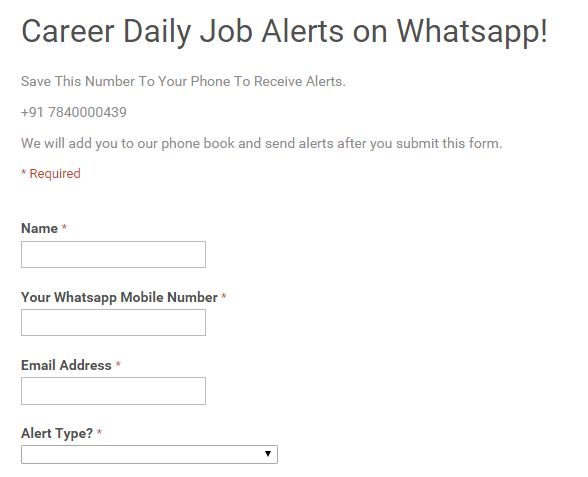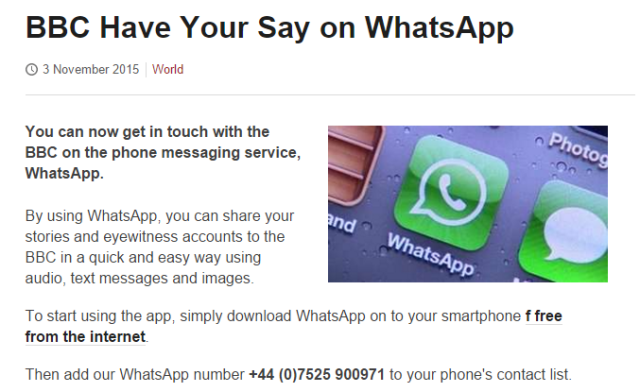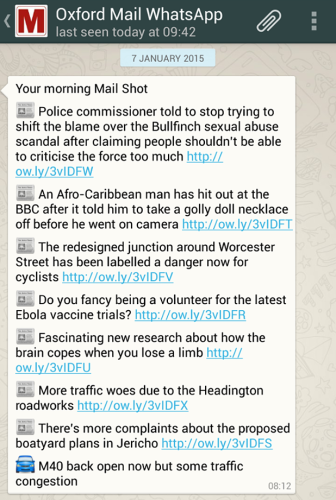Since being released in 2010, WhatsApp has taken the smartphone app arena by storm and revolutionized text messaging. In early-2014 it was bought by Facebook for almost $20 billion USD, and by late-2015 it had an estimated 900 million users.
WhatsApp started life as a cross-platform instant messaging client, but has since gone on to add a host of new features. One of the best features is the ability to utilize third-party services. Here we take a look at some of the most powerful new services to be added.
Health Information
During the height of the Ebola crisis in 2014, the BBC launched a WhatsApp service aimed at users in the affected West Africa.
It provided audio, text message alerts, and images in a bid to ensure residents in the area received the latest public health information and thus learned how to combat the spread of the disease in the region.
Although the usefulness of this service has now declined as the disease was slowly thwarted, it's not difficult to imagine the effectiveness of these type of alerts moving forward. Any global health pandemic could be combated in such a way, with governments and health agencies able to get news and advice to people quickly and effectively.
Political Updates
National UK newspaper The Mirror now offers political updates sent directly to your phone.
It aims to avoid sending too many alerts, promising to send you "only the best or breaking political news stories of the day", adding that their aim is to keep you up-to-date in "the most convenient way".
To sign up for the service, send a message saying "JOIN" to +44 7481 341193. To cancel the service, send "STOP" to the same number.
Job Alerts
Changing jobs provides a bit of a catch-22 situation. You badly want a new role, but endless CV submissions and checking job boards on a daily basis suck up your energy and enthusiasm for a switch.
Job alerts via WhatsApp can, therefore, provide a streamlined and more user-friendly experience than receiving email alerts.
The notion of jobs via WhatsApp is currently massive in India, but is starting to take off elsewhere.
Eyewitness Accounts
If you're lucky (or unlucky) enough to find yourself on the scene of a major news story, you might have either vital information or awesome images that need to be shared with the world.
Therefore, news organisations are increasingly looking to WhatsApp as the fastest and easiest way for such people to get in touch.
For example, the BBC now offers a WhatsApp number on their website (+44 7525 900971) for users to get in touch. According to a recent report, the broadcaster found out about a recent major incident at Alton Towers theme park thanks to the service.
South African news site EWN also operate a comparable service.
Elections
In mid-2014 India held a general election. The BBC (who by now you might have realized are pioneers in this burgeoning sector) used the service to distribute their content, engage with the audience, and source user-generated content.
Subscribers received three messages per day in both English and Hindi, as well as an introduction to how the app process would work and an invitation to share "thoughts, comments, and experiences of the campaign".
When speaking about the concept, Trushar Barot (Assistant Editor of the BBC's User Generated Content team) said, "A lot of these apps have huge, huge audiences. The potential is definitely there as we figure out an editorial product that fits with the platform".
UK newspaper The Telegraph also ran a similar service for the 2015 UK general election.
Local News
While it's reasonably easy to stay abreast of national and international news, some of the most interesting local stories sometimes slip through our nets. As a result, local news outlets around the world are now starting to offer a breaking news service.
One UK-based newspaper proved the immense value in doing this in 2014. The Oxford Mail – a hyper-local publication with a print circulation of just 12,000, launched their service with the hope of adding 300-500 subscribers in the local area.
These are the far flung places where people get our WhatsApp news alerts - you can sign up via http://t.co/Zy6hQcTlf3 pic.twitter.com/7dI8PQQpXK
— Oxford Mail (@TheOxfordMail) November 16, 2014
Six months later they had added 1,200+ new readers in 45 different countries around the world.
"Proportionately, WhatsApp brings in a four or five times greater conversion rate to page views than our daily email bulletin, and it's six or seven times greater when compared to Twitter," said Head of Content, Jason Collie. "When I launched it last year, I was thinking, if we have fewer than 300 subscribers by the end of the year it would be a failure and if we have 500 then I'd be pretty happy".
Advertising – A Sign of Things to Come?
While advertising might not necessarily be useful to the end-user, it unquestionably has the potential to be one of the most "powerful" services on WhatsApp.
One of the greatest assets of WhatsApp to date is that there has been no advertising. When Facebook bought the company, there were naturally fears this would change. Why else would Facebook buy it? After all, WhatsApp doesn't collect anywhere near the same amount of personal information that other social media networks do.
Keep in mind that with no marketing budget, WhatsApp is adding one million new members per day – and that's a huge resource to a business like Facebook.
Although co-founder Jan Koum has repeatedly attempted to reassure users that the service's no-ads policy will not change, it hard to forget how Facebook slowly but surely changed our opinions over things like privacy on the news feed, Beacon, the endless privacy settings, and sponsored stories. It is easy to see how WhatsApp could go the same way.
Which WhatsApp Services Do You Use?
In this new generation of WhatsApp services, which do you use? Do you find the messages you receive useful or annoying?
For more on WhatsApp, take a look at these terrific tips for using the WhatsApp desktop app:

